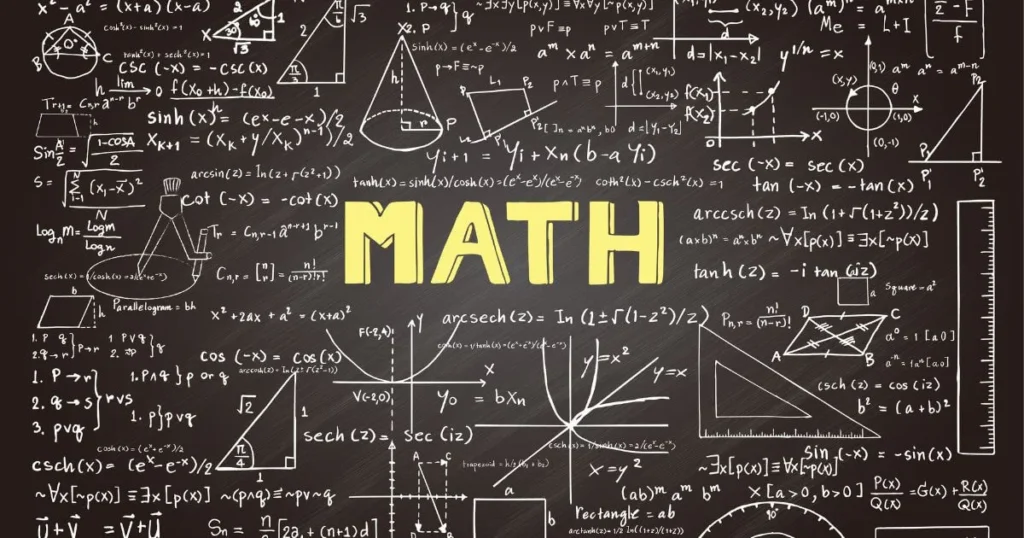
Who Invented Math? Unraveling the Origins of a Universal Language:
Mathematics, sometimes known as “math,” is a global language that is essential to human existence. It is the study of numbers, amounts, shapes, and patterns, and it serves as the cornerstone for numerous advances in science, technology, and the economy. But have you ever questioned who invented math? We will explore the history and development of mathematics in this investigation, revealing the amazing journey of this academic field.
The Ancient Roots of Mathematics:
Instead of being an invention in the traditional sense, mathematics is a finding that has evolved over thousands of years of human thinking and research. Its roots may be found in earlier cultures, where the development of mathematical ideas was prompted by practical need.
Ancient Sumerians (c. 3000 BCE):
The first writing system, known as cuneiform, was created by the Mesopotamian Sumerians. They created mathematical notations for commerce and accounting as a result. They lay the foundation for later mathematical developments with their mastery of numbers and geometry.
Ancient Egyptians (c. 3000 BCE):
With a strong connection to their agricultural and architectural requirements, the ancient Egyptians created a mathematical system. They are renowned for their geometrical techniques, which they applied widely to the construction of the pyramids and the control of the land.
Indus Valley Civilization (c. 3300–1300 BCE):
The ancient Indus Valley Civilization had a decimal system with regulated weights and measurements and flourished in what are now modern-day Pakistan and India. Archaeological discoveries point to a very advanced comprehension of mathematical and geometric ideas.
The Birth of Formal Mathematics:
Early civilizations set the groundwork for mathematical ideas, but it was in ancient Greece that intellectuals and scientists thoroughly investigated mathematical notions and theorems that formal mathematics started to take shape.
Thales of Miletus (c. 624–546 BCE):
The first mathematician in the Western tradition is frequently considered as Thales. He made important contributions to geometry, such as the theorems about circles and triangles.
Pythagoras (c. 570–495 BCE):
The Pythagorean theorem, which asserts that the square of the hypotenuse of a right-angled triangle equals the sum of the squares of the other two sides, is attributed to Pythagoras. The consequences of this theorem in geometry and trigonometry are extensive.
Euclid (c. 300 BCE):
One of the most important books in the history of mathematics is Euclid’s “Elements”. It is a thorough compendium of geometry information that includes definitions, axioms, and proofs for many theorems.
Mathematics in Ancient India and the Middle East:
In other regions of the world, mathematics was prospering at the same time that it was in ancient Greece.
Indian Mathematicians:
Mathematicians from India, such Aryabhata and Brahmagupta, have made important contributions to the field. They created the decimal system, the notion of zero, and the fundamentals of algebra and trigonometry.
Islamic Golden Age (8th to 13th centuries):
Algebra was invented during the Islamic Golden Age by thinkers like Al-Khwarizmi, whose contributions were so substantial that the term “algebra” came to exist. Additionally, they translated and preserved Greek and Indian mathematical works in order to pass them on to next generations.
The Renaissance and Beyond:
In Europe, interest in mathematics grew during the Renaissance. Mathematicians made great progress, such as Leonardo Fibonacci, who brought the Hindu-Arabic numeric system to Europe.
Rene Descartes (1596–1650):
With the introduction of coordinate geometry, which combined geometry and algebra, Descartes laid the groundwork for contemporary analytic geometry.
Isaac Newton (1642–1727) and Gottfried Wilhelm Leibniz (1646–1716):
Calculus, a discipline of mathematics that revolutionized science and engineering, was created separately by these geniuses.
Modern Mathematics:
Mathematics expanded and became more diverse exponentially throughout the 19th and 20th centuries.
Georg Cantor (1845–1918):
Cantor expanded our knowledge of mathematics by introducing set theory and the idea of several scales of infinite.
Albert Einstein (1879–1955):
Einstein’s theory of relativity, which mainly drew on sophisticated mathematical ideas, transformed science.
Alan Turing (1912–1954):
Turing’s contributions to computer science and mathematical logic created the groundwork for contemporary computers and the idea of algorithms.
Applied Mathematics:
The practical use of mathematical concepts to resolve issues in a variety of disciplines, including engineering, physics, economics, and more, is known as applied mathematics. To examine and handle practical difficulties, it entails developing mathematical models, methods, and approaches. Advances in technology, research, and decision-making depend heavily on applied mathematics.
Finite Mathematics:
Mathematics with separate, finite sets of values or constituents are referred to as finite mathematics. It focuses on real-world applications including probability, statistics, and linear programming, frequently in limited settings. Finite mathematics offers useful mathematical methods for tackling real-world issues in economics, social sciences, and business.
Mathematical Induction:
A method of proving the correctness of mathematical assertions for an unlimited range of values is mathematical induction. It consists of two steps: the base case, in which the truth of the statement is established for a particular value, and the induction step, in which it is demonstrated that, if the statement is true for one value, it must also be true for subsequent values, establishing a chain of evidence for all values in a set. It is frequently used in mathematics to prove theorems and identify patterns.
John Ball Mathematician:
John Ball is a renowned mathematician best recognized for his contributions to calculus of variations and nonlinear partial differential equations. He held the Sedleian Professorship of Natural Philosophy at the University of Oxford as of my most recent update in September 2021 and has made substantial scholarly contributions in the area of mathematical analysis.
Conclusion:
It is hard to pinpoint a single person or culture as the originator of mathematics, but it is certain that mathematics has developed throughout millennia as a result of the combined efforts of innumerable individuals and societies. Our understanding of the cosmos is continuously shaped by the dynamic and ever-evolving discipline of study known as mathematics. Mathematics is more than just a language.
In subjects as broad as physics, engineering, economics, and computer science, mathematics is more important than ever. It serves as a reminder that the quest for knowledge is an age-old and common goal and is a monument to the human ability for inquiry and ingenuity. In essence, mathematics is not something that was created; rather, it is something that we, as humans, have discovered and developed through our never-ending curiosity and search for knowledge.
FAQS
Since mathematics is such a broad subject with contributions from many ancient cultures, it lacks a singular inventor.
Mathematical ideas have their roots in prehistoric cultures including the Babylonians, Egyptians, and Greeks.
There is no one “first math guy” because mathematics has been developed over thousands of years by numerous noteworthy contributors.
The “father of math” moniker, which is occasionally applied to mathematicians from antiquity like Thales or Pythagoras, is a subject of historical debate.
